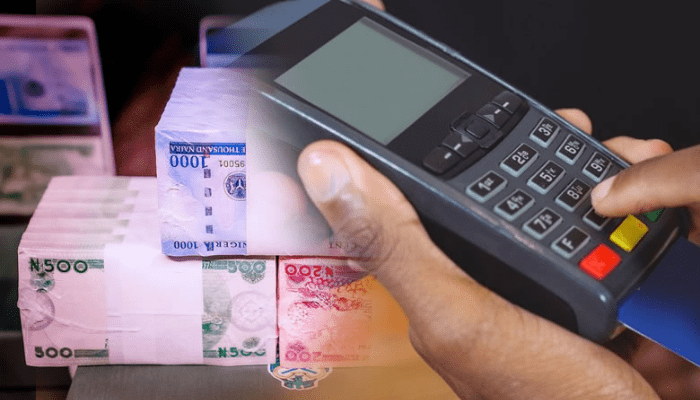Over a decade ago, Nigeria’s introduction of the cashless policy aimed to make Point-of-Sale (POS) systems a hallmark of modern convenience—tools designed to ease payments in stores, restaurants, and service outlets without the need for cash. Yet, years later, this vision has flipped on its head. Rather than promoting digital payments, POS machines have evolved into neighborhood cash dispensers, transforming small entrepreneurs into human ATMs scattered across both cities and rural areas.
Today, from street corners to small kiosks, POS agents have become indispensable. They provide cash withdrawals, money transfers, and bill payment services, filling a void left by traditional banking infrastructure. But this heavy reliance reveals an irony at the heart of Nigeria’s “cashless” ambition—a nation striving for digital finance but still deeply wedded to cash.
The Rise of a Cash-First Culture
When the Central Bank of Nigeria (CBN) introduced POS systems in 2012, the goal was simple: reduce physical cash circulation, decongest banking halls, and drive electronic payments. In many developed nations, POS terminals serve purely as payment facilitators. However, Nigeria’s economic and infrastructural realities shaped a different path.
Persistent ATM cash shortages, unreliable banking networks, limited rural access to banks, and fears of failed transactions made Nigerians favor POS agents as a safer, faster option for obtaining cash. In doing so, POS outlets became the most visible agents of financial inclusion—bringing banking closer to everyday people.
By 2024, data from the Nigeria Inter-Bank Settlement System (NIBSS) revealed that POS transaction values skyrocketed to ₦18 trillion, a 69% leap from ₦10.7 trillion in 2023. While this reflects growing digital adoption, much of it is driven by Nigerians’ need for cash accessibility rather than purely digital usage.
Voices from the Street
For many citizens, POS agents are not just service providers—they’re survival links.
“I use POS agents almost every day,” said Chibundu Mary-Cynthia, a small business owner. “They’re faster, even if charges are high. There’s no nearby bank, ATMs rarely work, and my app can’t hand me cash.”
Another user, Agu Chinonso, a virtual assistant, added, “I don’t even have an ATM card anymore. When I need cash for transport or small purchases, POS is the easiest option.”
Their experiences reflect a larger truth: in Nigeria, cash remains the heartbeat of commerce, even as digital platforms expand.
A Digital Dream Built on Fragile Foundations
Experts argue that Nigeria’s financial infrastructure is not yet strong enough to sustain a truly digital economy.
Kelechi Udochukwu, a fintech analyst, explains: “POS agents thrive because they bridge a gap the formal system hasn’t closed. People won’t abandon cash until digital systems become cheaper, more stable, and trustworthy.”
He highlights core issues—unreliable connectivity, fragmented systems, poor regulation, and the public’s deep-seated trust in tangible money. Over time, POS agents have morphed into “micro-fintech hubs,” offering deposits, bill payments, and remittances—proof that innovation grows fastest where infrastructure lags.
Chuma Akanna, a technology policy lawyer, connects the dominance of POS usage to Nigeria’s vast informal economy, which makes up roughly 58% of GDP. “Tens of millions of micro and small businesses run mainly on cash,” he said. “POS agents serve as their most accessible financial bridge.”
Akanna argues that while POS services foster inclusion, their rise also exposes how fragile Nigeria’s digital backbone remains. He calls for coordinated efforts involving telecom providers, banks, fintechs, and regulators—along with massive broadband expansion and consumer education—to build a payment ecosystem people can rely on.
Learning from Global Leaders
The contrast between Nigeria and more advanced economies is striking. In countries like South Korea, Singapore, and the UK, POS terminals remain true to their name—digital payment endpoints, not cash dispensers.
Across China and India, mobile wallet systems dominate everyday transactions. In Kenya, the M-Pesa revolution turned basic phones into digital wallets, powering seamless payments across even the smallest markets.
Nigeria, by comparison, sits in the middle of this transition—technologically capable but culturally hesitant. People transfer funds electronically and withdraw cash moments later, showing that the digital revolution has yet to win full public trust.
The Way Forward
According to Olusoji Adeyemo, Microsoft UK’s AI and Application Innovation expert, the focus must shift from restricting cash to making digital alternatives irresistible. “India and Kenya succeeded because their systems were affordable, accessible, and interoperable,” he said.
Adeyemo outlines four critical steps for Nigeria:
-
Invest in digital infrastructure—reliable electricity, broadband, and rural banking access.
-
Make digital channels affordable and secure through literacy campaigns and fraud prevention.
-
Encourage inclusive regulation that supports agent networks without stifling innovation.
-
Phase in cash limits gradually, ensuring no one is excluded from financial access.
Olusegun Afolabi, co-founder of Face Technologies UK, adds that Nigeria’s vast POS network could become a digital entry point—if reimagined. He recommends incentives like zero-fee microtransactions, integration with national ID systems (NIN), digital literacy programs in local languages, and stronger fintech-bank partnerships to rebuild confidence in electronic payments.
Conclusion
Nigeria’s POS ecosystem tells a story of innovation born out of necessity. It has empowered millions and expanded access to basic financial services. Yet, it also exposes the cracks in the foundation of the country’s digital economy.
To transform POS terminals from cash distributors into true digital gateways, Nigeria must rebuild public trust, strengthen network reliability, and make digital finance genuinely rewarding.
The nation’s cashless ambition is still within reach—but its success will depend not on forcing citizens away from cash, but on creating a financial ecosystem where they choose digital because it’s easier, safer, and better.

